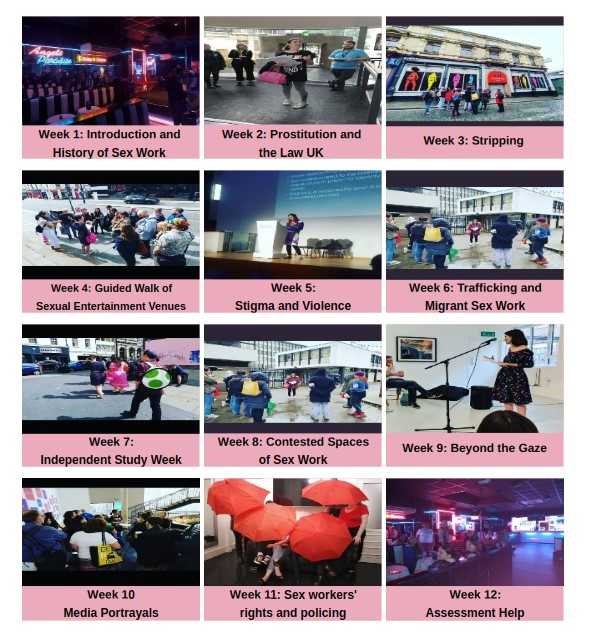International Sex Worker Rights Day 2023
Posted on: 3 March 2023 by Dr Gemma Ahearne in Blog

Dr Gemma Ahearne, module co-ordinator of Crime, Justice and the Sex Industry, writes about the epistemic injustice against sex workers.
Frequent readers of this blog will know that 3rd March is International Sex Worker Rights Day (and also my birthday!).
I am incredibly privileged to lead a third year undergraduate module with 168 registered students, called SOCI349 Crime, Justice and the Sex Industry. This is based on my 21 years of experience, including lived experience.
My module situates the sex industry within the broader landscape of violence against women and girls (whilst also acknowledging that there are male, trans and non-binary sex workers). Violence against sex workers is often seen as exceptionalized, and sex workers are often blamed for ‘placing themselves in risky situations’. We must understand violence against sex workers as part of the broader continuum of violence that all women and girls experience. In doing this we can also identify and acknowledge police and state violence against sex workers, and this includes the law itself.
We must interrogate carceral-only responses to violence against women and girls and instead consider a spectrum of decarceration. This is particularly timely given the David Carrick conviction and in the aftermath of the murder of Sarah Everard by a serving Met police officer and the two Met Officers jailed over taking photographs of murdered sisters Nicole Smallman and Bibaa Henry. Sex workers are particularly vulnerable to police power given the system of partial-criminalisation that they work under, including policing operations that displace them into intensified risk and through brothel-keeping laws that prevent sex workers from working together for safety.
On the module we consider epistemic injustice against sex workers who are so often spoken over and for, and not engaged with. Thus I ensure that in addition to academic texts such as journals, books and reports, and legal and policy documents, that we engage with the lived experience of those within the industry. In this regard, we also use podcasts, blogs, films, webinars, sex worker collective’s material, art exhibitions etc. Much academic publishing serves to gate-keep knowledge about sex workers from the workers themselves, and this is something I am keen to remedy.

I am happy to talk to anybody about the module, or about projects in the above areas.
About the Author
Dr Gemma Ahearne is a Lecturer in Criminology. She is also Deputy Director of Education in the Department of Sociology, Social Policy and Criminology, and Faculty Lead for Community and Belonging. Gemma is committed to teaching; the student experience; cross-faculty learning; and Dyslexic thinking. You can follow her on Twitter @princessjack.
Keywords: International Sex Worker Rights Day, Sex Work, Sex Industry, Social Justice, Criminology, Carceral, Sexual Entertainment Venues, Stripping, Teaching.